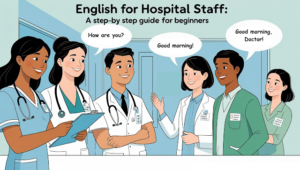Do you know what ‘double down’ means?
Listen in and learn an English expression you can use in the business setting.
Lindsay and Michelle talk about how you can make your vocabulary more interesting.
This will also help you connect better in English.
Do you double down?
Michelle asks Lindsay if they need to double up on their recordings for today.
This is a way of saying they would double the time or effort they put in.
Today’s episode was inspired by a question from a listener on Youtube.
Here is the question:
Hi, what do you mean by double up in this episode? Is it the same as sharing something?
@sogolbkhairy74
Doubling up
Lindsay and Michelle focus on discussing the phrase ‘double up.’
This phrase can be used in casual conversations or even in the business setting.
Lindsay and Michelle go through some contexts in which it is used.
Double down and more
There are many ways you can use the phrases ‘double up’ and ‘double down.’
Lindsay and Michelle go through each definition and some examples so you can better understand these expressions.
To double up means to do things twice as much or just more in general.
Examples:
- Michelle, we need to double up on recording for this week so we don’t have to worry about recording on vacation.
- I think it would be good to double up on the amount of copies we print. We want to have extras.
- Would it be okay if we double up on coverage of the phones for this week? It’s getting super busy here.
Another definition of ‘double up’ is to be in small groups or share.
Examples:
- Okay, we don’t have enough pamphlets for everyone, so you might have to double up.
- I know we all want to have a work laptop for home, but we just have to double up for now until the shipment comes in.
Double check
We say ‘double check’ when we need to confirm something or check it a second time.
You will hear someone say they need to double or triple check something.
Here are some examples:
- Can you double check that the door is locked?
- I triple checked our tech setup for the presentation. I don’t want to take any chances!
Michelle asks Lindsay if she often double or triple check things a lot at work.
Lindsay shares she is a checker.
She always goes through what she has backed before she travels just to make sure that she has everything.
Michelle is similar and doesn’t mind taking the time to double and triple check everything so she won’t have any problems before leaving.
Roleplay
Here is a quick roleplay from Lindsay and Michelle.
They will use the vocabulary and tips shared in today’s episode.
This will help you better understand how to apply this in a conversation.
In this scenario, Lindsay and Michelle are coworkers in a meeting.
They are about to lead a meeting.
Michelle: Okay, so did you double check the agenda? We want to make sure it’s all in place before the rest of the team comes in.
Lindsay: Yes. I triple checked it, actually.
Michelle: Awesome, thanks.
Lindsay: It’s going to be tough to tell people they need to double up on their workload until the deadline.
Michelle: I know…but we have to just double down and get it done. We will all help each other.
Lindsay: True.
You can check out other Business English episodes that can help you improve your English at work.
Listen to BE 395: Don’t Be Vulnerable to Business English Mistakes and learn ways to be more confident when presenting and connecting in the business world.
Takeaway
Understanding the English phrase like “double up” goes beyond learning.
Using vocabulary like this will help with expressing yourself with clarity and confidence.
In today’s global business world, where collaboration and adaptability are key, using natural, idiomatic expressions helps you sound more relatable and professional.
Whether you’re managing deadlines, coordinating resources, or motivating your team, these expressions help you connect more smoothly and express your intentions clearly.
Make sure to keep building your English vocabulary so you don’t only use basic expressions.
Keep consuming English content and keep practicing to become increasingly more fluent!
What other advanced English phrases do you think you use at work that make your communication more effective?
Share one with us in the comment section below.



